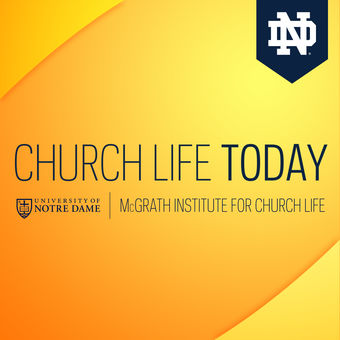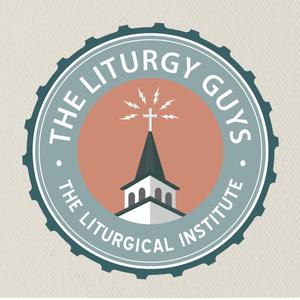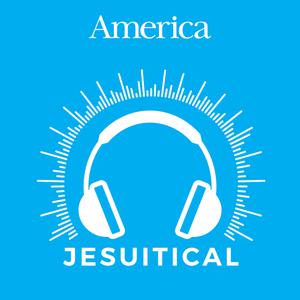
Church Life Today
Church Life Today
• Dr. Tim O’Malley with the McGrath Institute for Church Life at the University of Notre Dame hosts the show Church Life Today. On the show, we will have conversations with Pastoral leaders, and scholars from around the country about issues that matter most to Church Life today.
- 41 minutes 36 secondsThe Next Wave of Artificial Intelligence and Our Humanity, with Stephanie DePrez
Agentic AI is a term that will be new to many people. If we were to think of artificial intelligence in waves, the first wave was about making predictions and the second wave was about generating content. This third wave, known as Agentic AI, is far more sophisticated. It is about AI agents performing complex tasks and making decisions. That might sound like the beginning of a dystopian novel or an apocalyptic film, but in reality it has much more to do with how we engage in the consumer marketplace or with service providers, or really just about how we go through our day-to-day lives doing our day-to-day tasks.
Our episode today is the beginning of a conversation about what is taking place with the increasing integration of AI into our society and, in light of this, what is important for our own human and interpersonal development. My guest is my longtime friend who has been on our podcast before, Stephanie DePrez. For the past couple years, Stephanie has been working for a company investing heavily in Agentic AI, while also continuing to pursue her career in opera and comedy in Germany. She reached out to me after listening to our recent episodes on the encyclical Dilexit Nos, which is of course all about the Sacred Heart of Jesus, to talk about what the growth in Agentic AI means for our humanity.
Follow-up Resources:
- “Dilexit Nos – Part 1, a conversation with Joshua McManaway and Melissa Moschella,” podcast episode via Church Life Today
- “Dilexit Nos – Part 2, a conversation with Abigail Favale and Brett Robinson,” podcast episode via Church Life Today
- “In Search of a Full Life: A Spiritual and Practical Guide,” podcast episode via Church Life Today
- “Life is changed but something ended, with Stephanie DePrez,” podcast episode via Church Life Today
- Find out more about Stephanie DePrez’s work in opera, comedy, voice coaching, and writing at stephaniedeprez.com.
- “What is Man that AI Is Mindful of Him?”, by Jeffrey Bishop, essay via Church Life Journal
Church Life Today is a partnership between the McGrath Institute for Church Life at the University of Notre Dame and OSV Podcasts from Our Sunday Visitor. Discover more ways to live, learn, and love your Catholic faith at osvpodcasts.com. Sharing stories, starting conversations.
6 January 2025, 1:00 pm - 34 minutes 5 secondsHow Many Students Are Studying Theology?!, with Anthony Pagliarini
When people hear about the undergraduate theology program at the University of Notre Dame they are genuinely astonished. They had no idea that that many students were choosing to study theology. Each year, the number of students grows. What is going on? Why are students so interested? What does this tell us about evangelization, and hope for the Church, in the Church?
My guest today is my friend and colleague, Professor Anthony Pagliarini, who is the director of the undergraduate theology program at Notre Dame. In this capacity, not only does he teach hundreds of students annually in the classroom, he also meets with, learns from, and advises all the students who declare theology majors or minors at Notre Dame. He’ll help us learn about what is going on in Notre Dame’s theology program and why it is happening.
Follow-up Resources:
- Notre Dame Theology Department website
- “What happened to these Catholic college students after they took a required theology course,” article in Aleteia by Leonard DeLorenzo
- “Encouraging students to ‘Take a Second Look’ at Notre Dame,” about a new initiative with Notre Dame theology to re-propose the Catholic faith
Church Life Today is a partnership between the McGrath Institute for Church Life at the University of Notre Dame and OSV Podcasts from Our Sunday Visitor. Discover more ways to live, learn, and love your Catholic faith at osvpodcasts.com. Sharing stories, starting conversations.
16 December 2024, 2:00 pm - 39 minutes 42 secondsRethinking Sex, with Christine Emba
For years now, modern-day sexual ethics has held that “anything goes” when it comes to sex—as long as everyone says yes, and does so enthusiastically. So why, even when consent has been ascertained, are so many sexual experiences filled with frustration and disappointment, even shame?
The truth is that the rules that make up today’s consent-only sexual code may actually be the cause of the sexual malaise—not the solution. In Rethinking Sex, reporter Christine Emba shows how consent is a good ethical floor but a terrible ceiling. She spells out the cultural, historical, and psychological forces that have warped the idea of sex, what is permitted, and what is considered “safe.”
Reaching back to the wisdom of thinkers like Thomas Aquinas and Andrea Dworkin, and drawing from sociological studies, interviews with college students, and poignant examples from her own life, Emba calls for a more humane philosophy, one that starts with consent but accounts for the very real emotional, mental, social, and spiritual implications of sex.
With a target audience that clearly includes sexually active young adults, Emba tries to help us imagine what it means to will the good of others and thereby discover greater affirmation and fulfillment.
Follow-up Resources:
- Rethinking Sex: A Provocation, by Christine Emba
- “In Search of a Full Life: A Practical and Spiritual Guide,” podcast episode via Church Life Today
- “Nationwide Study on Faith and Relationships, with J.P. DeGance,” podcast episode via Church Life Today
- “Letter to a Young Catholic: How to have sex,” article by Leonard J. DeLorenzo in Our Sunday Visitor
- “The End of Friendship, with Jennifer Senior,” podcast episode via Church Life Today
Church Life Today is a partnership between the McGrath Institute for Church Life at the University of Notre Dame and OSV Podcasts from Our Sunday Visitor. Discover more ways to live, learn, and love your Catholic faith at osvpodcasts.com. Sharing stories, starting conversations.
4 December 2024, 4:00 pm - 48 minutes 34 secondsSaints Who Flew, with Carlos Eire
Flying is impossible. Well, not strictly impossible, because we fly in airplanes and hot air balloons, but you know what I mean: human beings can’t fly. It’s impossible.
Except here’s the thing: a good number of people –– hundreds, maybe thousands –– have sworn, upon penalty of damnation, that they have witnessed people flying, or at least levitating. People like Teresa of Avila and Joseph of Cupertino. About saints like these, a nearly overwhelming number of testimonies say the same thing over and over: “they flew”.
If flying is impossible, then the history of saints who flew is a history of the impossible. And that is the book my guest wrote. The book is They Flew: A History of the Impossible. The author and my guest is the esteemed scholar Dr. Carlos Eire, the T. L. Riggs Professor of History and Religious Studies at Yale University.
Professor Eire joined us at the University of Notre Dame to deliver a lecture in our Saturdays with the Saints series, and a link to the recording of that lecture is included in this episode’s show notes.
Follow-up Resources:
- They Flew: A History of the Impossible, by Carlos Eire
- Saturdays with the Saints lecture.
- “The Trouble with Levitation and Bilocation,” by Carlos Eire, journal article in Church Life Journal
Church Life Today is a partnership between the McGrath Institute for Church Life at the University of Notre Dame and OSV Podcasts from Our Sunday Visitor. Discover more ways to live, learn, and love your Catholic faith at osvpodcasts.com. Sharing stories, starting conversations.
18 November 2024, 6:00 pm - 45 minutes 14 secondsDilexit Nos – Part 2, a conversation with Abigail Favale and Brett Robinson
Notre Dame professors Abigail Favale and Brett Robinson join me today to talk about Pope Francis’s new encyclical, Dilexit Nos: On the Human and Divine Love of the Heart of Jesus Christ. This is the second of two conversations on the encyclical that we are featuring on Church Life Today, each with faculty colleagues of mine from the McGrath Institute for Church Life. In this episode, we will talk about poetry and symbolism, artificial intelligence and algorithms, the importance of memory, the human person as a living union, and more.
Abigail Favale is Professor of the Practice at Notre Dame, where her academic expertise brings her to the intersection of theology, literature, and women’s studies.
Brett Robinson is Associate Director of Outreach and Associate Professor of the Practice in the McGrath Institute for Church Life. He leads a number of initiatives in our institute, especially ones related to Catholic media studies.
Follow-up Resources:
- Dilexit Nos: On the Human and Divine Love of the Heart of Jesus Christ
- Part 1 of the conversation on the new encyclical, with Melissa Moschella and Joshua McManaway, podcast episode via Church Life Today
- “The Sacred Heart of the New Encyclical,” by Leonard DeLorenzo, essay in Church Life Journal
- “Some Human Beings Carry Remnants of Other Human Beings in Their Bodies,” by Kristin Collier, essay in Church Life Journal
- On the devotion to the Sacred Heart of Jesus by the Sisters of Carmel
Church Life Today is a partnership between the McGrath Institute for Church Life at the University of Notre Dame and OSV Podcasts from Our Sunday Visitor. Discover more ways to live, learn, and love your Catholic faith at osvpodcasts.com. Sharing stories, starting conversations.
11 November 2024, 5:00 pm - 46 minutes 42 secondsDilexit Nos – Part 1, a conversation with Joshua McManaway and Melissa Moschella
Notre Dame professors Melissa Moschella and Joshua McManaway join me today to talk about Pope Francis’s new encyclical, Dilexit Nos: On the Human and Divine Love of the Heart of Jesus Christ. The encyclical is a call to renew our devotion to the Sacred Heart of Jesus and, thereby, to become more fully, more completely, more authentically human, especially in our love for God and love of neighbor. This conversation is the first of two that we will host on our show with my faculty colleagues in the McGrath Institute for Church Life, each of whom has a distinct area of expertise.
Melissa Moschella is the newest member of our McGrath Institute for Church Life faculty, where she is Professor of the Practice. She is a philosopher whose work spans the fields of ethics, political philosophy, and law, as well as natural law theory, biomedical ethics, and the family.
Josh McManaway has joined me on several episodes before. He is Assistant Professor of the Practice in the McGrath Institute for Church Life, where he is also the program director of the Savoring the Mystery preaching program, and academic director of the “Take a Second Look” initiative, which helps young adults rediscover the beauty and riches of Catholicism. A theologian, Josh is an expert on the Early Church and is currently finishing up a book on the Apostles’ Creed.
Follow-up Resources:
- Dilexit Nos: On the Human and Divine Love of the Heart of Jesus Christ
- "The Sacred Heart of the New Encyclical," by Leonard DeLorenzo, essay in Church Life Journal
- “Praying into the Sacred Heart of Jesus, with Fr. Joe Laramie,” podcast episode via Church Life Today
- Five-part series on the Devotion to the Sacred Heart of Jesus by Leonard DeLorenzo, via Our Sunday Visitor
- “Are Jansenists Among Us?” by Sean Blanchard in Church Life Journal
- On the devotion to the Sacred Heart of Jesus by the Sisters of Carmel
Church Life Today is a partnership between the McGrath Institute for Church Life at the University of Notre Dame and OSV Podcasts from Our Sunday Visitor. Discover more ways to live, learn, and love your Catholic faith at osvpodcasts.com. Sharing stories, starting conversations.
1 November 2024, 2:00 pm - 33 minutes 19 secondsThe Catholicity of Montessori Education, with Beth Capdevielle
In her 1936 book, The Secret of Childhood, Maria Montessori writes that “We must wake up to the great reality that children have a psychic life whose delicate manifestations escape notice and whose pattern of activity can be unconsciously disrupted by adults.” The approach to education that Montessori established sought to remove such unnecessary disruptions while cultivating a fruitful environment wherein children could discover the world, grow toward the maturation of their God-given capacities, and experience the wonder and responsibility of real freedom.
Montessori schools have since been established all across the United States and indeed across the world, including here in my own hometown of South Bend, Indiana. The conversation on our episode today will focus on one such school, Saint Joseph Montessori, which is in fact a Catholic Montessori school for children ages 2.5 to 6.
My guest is Dr. Elizabeth Capdevielle, who is a board member of Saint Joseph Montessori, and who, as a trained Montessori educator, will help us learn more about the Montessori approach, the anthropological underpinnings of this education, and the correspondence of Montessori education to a Catholic vision of the world and the human person.
In addition to serving on the board at Saint Joseph Montessori, Beth is an assistant teaching professor at the University of Notre Dame, where she teaches in the University Writing Program.
Follow-up Resources:
- Saint Joseph Montessori, South Bend, IN
- “Joy and Parenting,” by Claire Fyrvquist, Co-founder of St. Joseph Montessori, journal article in Church Life Journal
- The Secret of Childhood, by Maria Montessori
- The Absorbent Mind: A Classic Education and Child Development for Educators and Parents, by Maria Montessori
- “Catechesis of the Good Shepherd, with Mary Mirrione,” podcast episode via Church Life Today
The episode is sponsored by Saints Mary’s Press, smp.org/bibles.
Church Life Today is a partnership between the McGrath Institute for Church Life at the University of Notre Dame and OSV Podcasts from Our Sunday Visitor. Discover more ways to live, learn, and love your Catholic faith at osvpodcasts.com. Sharing stories, starting conversations.
22 October 2024, 12:00 am - 26 minutes 24 secondsThe Vigil Project, with Andrew Goldstein
The Vigil Project is a nonprofit Catholic apostolate and collective of musical artists dedicated to leading people to an encounter with God through music. Their work stretches from the liturgy to everyday life, from Sunday worship and Feast Days to Tuesday afternoons waiting in a carpool line. Their goal is to offer and support excellence and reverence in music in all of these moments. The Vigil Project has ten albums available, they create communities for Catholic musicians, and they offer retreats and courses for musicians and music leaders.
Today the Vigil Project’s Director of Mission Advancement joins me to talk about the work of their apostolate and the people they serve. Andrew Goldstein is himself a Catholic musician who, for ten years, served as a church music director. Before coming to the Vigil Project, he co-founded Seattle’s critically acclaimed chamber music series, Emerald City Music. He has also led chamber music festivals, and worked to guide orchestras and opera houses.
After our conversation today, stick around till the very end of this episode so you can hear one of the devotional songs that Andrew shared with us from The Vigil Project, one which appears on their album “True Presence.”
Follow-up Resources:
- Visit The Vigil Project online at thevigilproject.com.
- The Vigil Project’s monthly newsletter is available at thevigilproject.com/subscribe
- Learn about the Catholic Musician Community at catholicmusician.org.
- The song at the end of this episode comes from the album, “True Presence.” Stream that album on any service, here. Their full catalog of music is available at thevigilproject.com/listen
- Learn more about the Catholic Musician Retreat at thevigilproject.com/catholic-musician-retreat
- Learn more about the Meaning of Music film project at thevigilproject.com/meaningofmusic
Church Life Today is a partnership between the McGrath Institute for Church Life at the University of Notre Dame and OSV Podcasts from Our Sunday Visitor. Discover more ways to live, learn, and love your Catholic faith at osvpodcasts.com. Sharing stories, starting conversations.
7 October 2024, 4:00 am - 1 hour 5 minutesGraham Greene’s ‘The End of the Affair’: a discussion with Josh McManaway
College students really love The End of the Affair by Graham Greene. Both Josh McManaway and I have taught this book in undergraduate courses, with great success. Josh has used this book in a theology course on “Conversion,” and I have used it in a course on “The Catholic Imagination.” Since Josh and I really enjoyed creating an episode earlier this year about C. S. Lewis’s The Great Divorce, we wanted to create this episode about another book we both love, and our students love, too. So here’s our discussion on The End of the Affair.
Follow-up Resources:
- “C.S. Lewis’s ‘The Great Divorce’: a discussion with Josh McManaway,” podcast episode via Church Life Today
- “Quantity and the Politics of Prayer,” by Chase Padusniak, essay via Church Life Journal (dealing, in part, with The End of the Affair)
The End of the Affair by Graham Greene (Penguin Classics Deluxe Edition), which Josh and Lenny cite in this episode.
Church Life Today is a partnership between the McGrath Institute for Church Life at the University of Notre Dame and OSV Podcasts from Our Sunday Visitor. Discover more ways to live, learn, and love your Catholic faith at osvpodcasts.com. Sharing stories, starting conversations.
16 September 2024, 4:00 am - 29 minutes 36 secondsWhat Young Adults Are Seeking in Faith and Life, with Jeff Keuss
Purpose and meaning, healing and growth, community and fellowship—these values have traditionally been found in church. Though they are leaving the pews in droves, young adults are still seeking these spiritual benefits. Based on five years of qualitative and quantitative research,Defiant Hope, Active Love offers practical recommendations for making faith communities more hospitable to the next generation. The editor of the book and lead researcher in the project joins me today to talk about his team’s findings and where to go from here.
Jeff Keuss is a professor of Christian ministry, theology, and culture at Seattle Pacific University, where he also previously served as director of the University Scholars Honors Program and associate dean of graduate studies for the seminary.
Follow-up Resources:
- Defiant Hope, Active Love: What Young Adults Are Seeking in Places of Work, Faith, and Community, edited by Jeff Keuss
- Pivot NW Research, where you can find more about the study, the book, and additional resources.
- “In Search of a Full Life: A Practical and Spiritual Guide,” podcast episode via Church Life Today
- “Rethinking Work, with Paul Blaschko,” podcast episode via Church Life Today
- “Becoming the Adult in the Room, with Sarah Pelrine,” podcast episode via Church Life Today
- “Nationwide Study on Faith and Relationship, with J.P. De Gance,” podcast episode via Church Life Today
Church Life Today is a partnership between the McGrath Institute for Church Life at the University of Notre Dame and OSV Podcasts from Our Sunday Visitor. Discover more ways to live, learn, and love your Catholic faith at osvpodcasts.com. Sharing stories, starting conversations.
2 September 2024, 11:00 pm - 35 minutes 38 secondsNationwide Study on Faith and Relationships, with J.P. De Gance
Wouldn’t it be fascinating if the most current social science research discovered not some new and unheard-of things but rather ancient and even biblical truths? The nonprofit organization Communio is reporting that this is indeed what is happening. Through their Nationwide Study on Faith and Relationships, they have found that family structure is the most important indicator for the religious commitment of those raised in that home. Alongside that, of course, we regularly find people who do better in school, who are more successful in work, who are healthier, and who can manage relationships better on their own. It is as if we humans were created for stable, committed relationships and called to procreate from this marital commitment.
J.P. De Gance, the founder and president of Communio, joins me today to discuss the work he and his team have been doing and how their work can help equip churches to evangelize through healthy relationships and marriage. J.P. is also the co-author of the book, Endgame: The Church’s Strategic Move to Save Faith and Family in America. You can find out more about J.P. and Communio at their website, communio.org.
Follow-up Resources:
- Nationwide Study on Faith and Relationship from Communio
- Endgame: The Church’s Strategic Move to Save Faith and Family in America by John Van Epp and J.P. De Gance.
- “The State of the Family in America, with Brad Wilcox,” podcast episode via Church Life Today
Church Life Today is a partnership between the McGrath Institute for Church Life at the University of Notre Dame and OSV Podcasts from Our Sunday Visitor. Discover more ways to live, learn, and love your Catholic faith at osvpodcasts.com. Sharing stories, starting conversations.
19 August 2024, 4:00 am - More Episodes? Get the App
Your feedback is valuable to us. Should you encounter any bugs, glitches, lack of functionality or other problems, please email us on [email protected] or join Moon.FM Telegram Group where you can talk directly to the dev team who are happy to answer any queries.
 Catching Foxes
Catching Foxes
 The Liturgy Guys
The Liturgy Guys
 Jesuitical
Jesuitical
 The Electric Waffle
The Electric Waffle